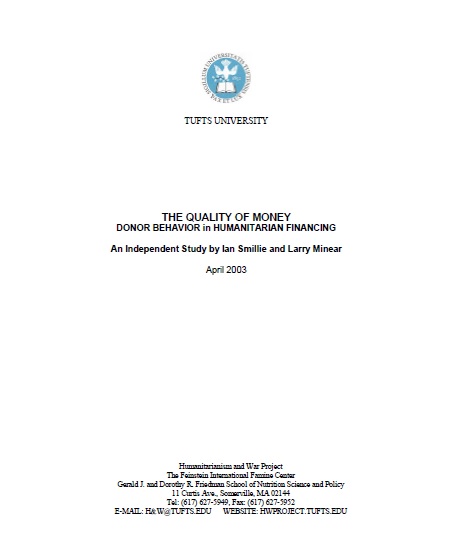Donor behavior represents a patchwork of policies and activities by individual governments, which taken together, do not provide a coherent or effective system for financing the international humanitarian enterprise.
The report studies donor behavior and reviews how various rationales for this behavior affect humanitarian efforts. It makes twelve recommendations, proposing broadly that donors work towards a strengthened multilateral core, which has the mandate, capacity, and resources to meet humanitarian needs in a more impartial and effective manner.







